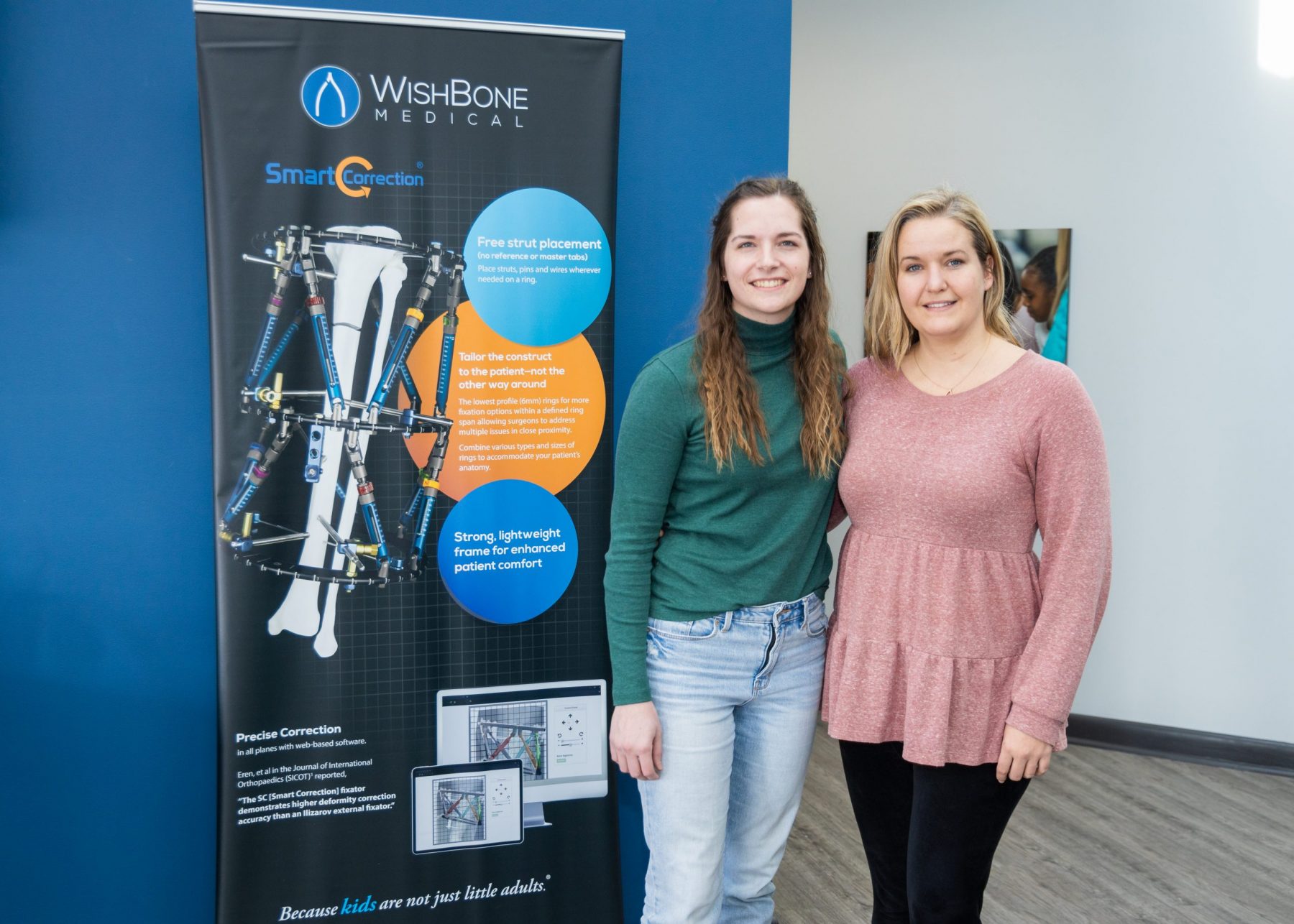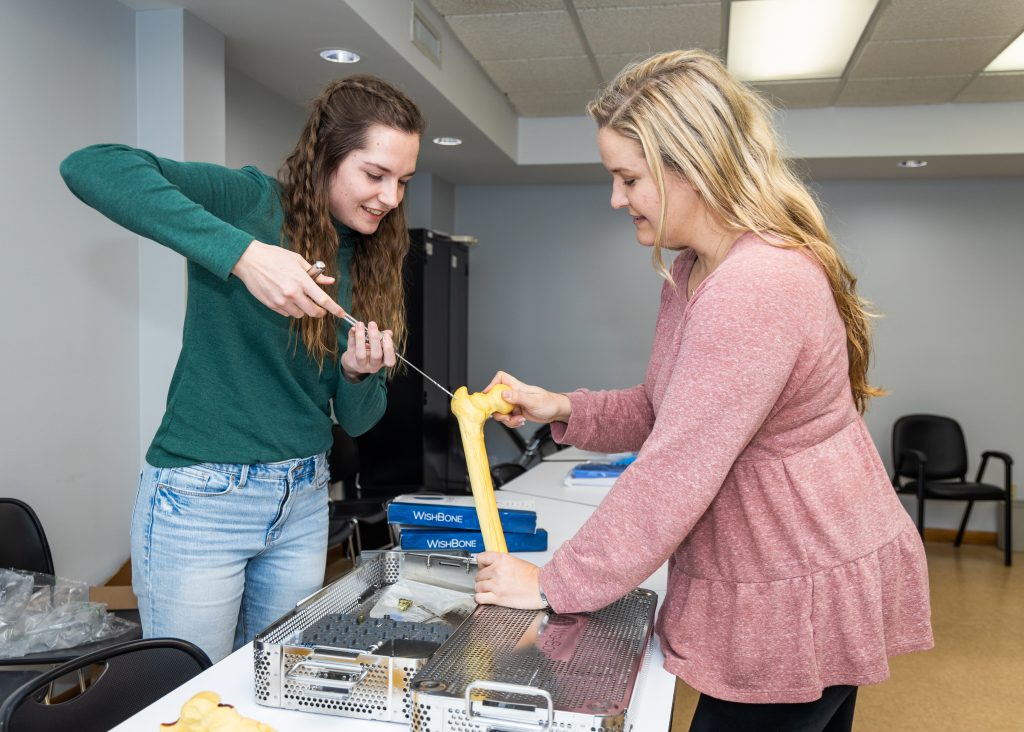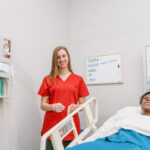When you think of an engineer, who do you picture? Is it a middle-aged man with a calculator in hand? Is he exceptionally analytical? Is he brilliantly intelligent? Did you picture any female engineers?
In a world that changes daily, it’s important to face our stereotypes head-on and challenge what we think to be true. This image of a male engineer may have been accurate in the past, but it’s changing every day. According to the U.S. Census Bureau, women made up 8% of STEM workers in 1970. In 2019, that increased to 27%. At Grace, female engineering students are celebrated and empowered to pursue their passions.
We sat down with two women in engineering and heard about their experience studying and working in the Orthopedic Capital of the World. Natalie Gerber, a senior engineering student at Grace, has already accepted a job post-graduation at WishBone Medical, a pediatric orthopedic company in Warsaw. Through her connections at Grace and WishBone, Gerber met mechanical engineer Mary Wentorf, a member of the Advisory Council for the Department of Engineering and wife of Fred Wentorf, Department Chair and Associate Professor of Engineering.
The two female engineers share their experiences as women in engineering and the opportunities that they have found in the Orthopedic Capital of the World.
What are some of the benefits of studying and working in the Orthopedic Capital of the World?
Natalie: From an academic perspective, we’ve had several projects with different companies. In fact, I got connected to my internship at Wishbone because of a project for class. We also had access to real engineering problems and tours of different engineering facilities in the area. I was able to sit in on an advisory council meeting, where having local engineers give input and direct what the students are being taught makes sense.
Mary: The fact that I have been able to work at my fourth company in the area and still not move has been kind of amazing. Now I have contacts at 12 different companies, and that networking is super important because you never know where they’re going to be. The companies here want to pour in to Grace students to give back and help the next generation, but we also want to know who those top students are before someone else grabs them.
How do you see your experiences as female engineers different from those of male engineers?
Mary: When I started my first job, I put my hair in a bun and wore men’s clothes based on my experience in college with fellow students and older male professors. I was determined not to be a girl, but an engineer! At my first job, I was the second female in a group of 55 engineers, and my manager told me that I couldn’t just go out to lunch with the other girl. I had an uncomfortable experience with another male engineer who made inappropriate comments. I thought we would have engineering challenges, not those kinds of dynamics. That was not the kind of engineering I was prepared for. I’m thankful that those experiences have been infrequent, but they are real, and I think it’s important to speak up right away. By speaking up and showing people where the boundaries were, I think that helped me out. I couldn’t worry about whether or not I was missing an opportunity. It’s important to focus on doing the best at the job I can and not worry about all the rest.
Natalie: There were a couple engineering classes in high school where I was the only girl, but I never felt like I couldn’t do engineering because I was a girl. I’ve always loved learning, and working through stuff has always been fascinating to me. Coming here to Grace, there were two other girls in the grade above me, but for the past two years, there haven’t been any other women in engineering. It wasn’t huge, but I relate to feeling like an island. Walking into East Hall, the engineering building, I know I’m the only girl in that building. At times, I’ve felt like I need to do more work, but part of that is the high standards I put on myself.






